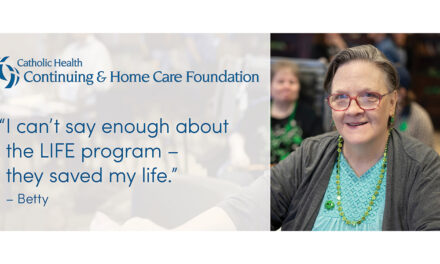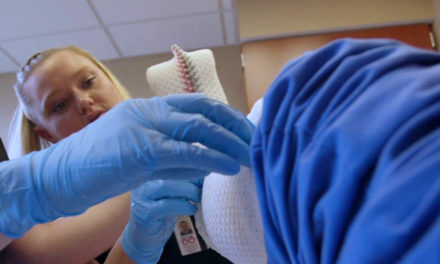Structural heart disease is a form of heart disease affecting the foundation of the heart. This happens when the valves or tissue are damaged or aren’t working properly. The condition can be congenital, meaning present at birth, or result from underlying diseases and aging. An estimated 10 percent of adults over the age of 75 have structural heart disease.
The most common forms of structural heart disease are:
- Mitral valve disease
- Tricuspid and pulmonic valve disease
- Aortic valve disease
- Congenital heart diseases such as atrial septal defect and ventricular septal defect
- Hypertrophic cardiomyopathy
Just like arteries, the aortic valve can be become clogged with cholesterol buildup, When the valve does not open properly, it impairs normal heart function, and can lead to heart failure, heart attack, or even sudden death.
What Are The Symptoms of Structural Heart Disease?
Many cases of structural heart disease are congenital or diagnosed at birth. Others develop over the course of the patient’s lifetime. In the early stages, adults with structural heart disease may not experience symptoms, but, as it progresses, you may develop one or more of the following:
- Tightening or pain in the chest
- Fatigue
- Shortness of breath
- Lightheadedness
- Irregular heartbeat
- High blood pressure
- Swelling in the abdomen, ankles, or feet
- Kidney dysfunction
What Are My Treatment Options?
To diagnose structural heart disease, your doctor may request a blood test, chest x-ray, electrocardiogram (EKG), or echocardiogram (Echo).
Most structural heart conditions require traditional open heart surgery. However as part of the Structural Heart Program at the Catholic Health Heart Center, we also offer the most advanced non-surgical procedures to treat aortic valve disease and atrial fibrillation. Transcatheter Aortic Valve Replacement, or TAVR for short, replaces diseased aortic valves in patients through a tiny catheter and the Watchman Left Appendage Closure (LAAC), which is also minimally invasive and a catheter-based procedure, reduces stroke risk in people with atrial fibrillation (AFib).
Dr. Stephen Downing MD, FACC, FACS, Chair of Cardiothoracic Surgery at Catholic Health and Medical Director of the Heart Center’s TAVR program describes TAVR as a “valve within a valve” procedure. “We thread a small catheter, tipped with a replacement valve, through a blood vessel in the leg or chest and guide it to the heart. Once in place across the existing heart valve, the new valve is expanded, pushing the unhealthy valve aside to take over regulating blood flow in the heart,” he said.
TAVR: A Life Saving Breakthrough
“We are grateful for this breakthrough technology which allows us to help people, many in their 80s or 90s, who we couldn’t help before because they were too high risk for traditional open heart surgery.” Dr. Downing added. “Recovery is also much faster, usually two or three days, and patients are able to resume normal activities sooner than with traditional surgery. I have had TAVR patients tell me they feel better right away, are steadier on their feet and experience less shortness of breath.”
The Heart Center, which began performing the revolutionary TAVR procedure in 2016, marked its 500th TAVR milestone last fall. “Our TAVR patients have been experiencing excellent outcomes and we take pride in the personalized attention and quality care we provide to our patients,” said Dr. Downing.
Take Care of Your Heart, And It Will Take Care of You
Structure doesn’t just refer to your heart, but also your overall body and wellbeing. Your heart is one of the body’s most vital organs. If it’s not cared for, your risk of cardiac complications can significantly increase.
If you have questions about structural heart disease, consider scheduling a consult with one of our cardiac specialist. For those who already have a heart condition diagnosis, Catholic Health provides treatment and therapies that focus on a quicker, easier recovery and enhanced quality of life.
Find a Cardiologist Near You
Call (716) 706-2113
Find a Cardiologist Near You
Call (716) 706-2113





